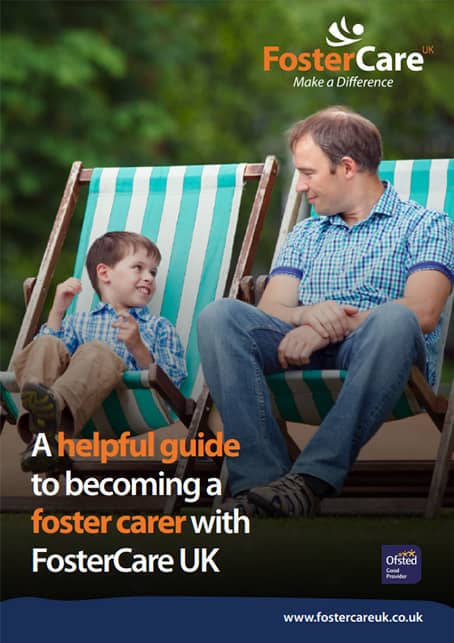


What happens when a child is taken into care?
Benefits of being a foster parent
What is a care leaver?
How to become a foster parent
How to foster a child
What are the foster care requirements
Can I choose who I foster?
Fostering with pets FAQ
How long does it take to become a foster parent?
What is the role of an independent fostering agency?
Fostering a disabled child
Tips for coping when foster placements end
Do foster carers pay tax?
What to expect in a fostering assessment
Common Fostering Challenges and Solutions
What disqualifies you from being a foster carer?
Muslim Fostering
Fostering as a single parent
Can you foster a child with a criminal record?
Can you work and foster?
Top 10 fostering myths
Can I foster if…?
Can I foster and rent?
LGBT Fostering: can I foster if I’m gay
Top transferable skills to become a foster carer
Can you foster with a mental health condition?
Christian Fostering
Sikh Fostering
Cultural Diversity in Foster Care
How to encourage foster children to read
Reasons for a child to be taken into care
Tips for coping with attachment disorders in Foster Children
Fostering vs Adoption
What happens when foster parents get divorced?
What is reunification in foster care?
How to deal with foster child bullying
A guide to the foster care handbook
Guide to fostering young children
Types of self-harm
A guide to fostering teenagers
What are the signs of depression in foster children?
There are a wide number of reasons that could lead to a child being taken into foster care, including parent illness, abandonment or incarceration. Other circumstances could be that the children may have been neglected and suffered from physical or emotional abuse.
While the reasons why social services intervene have become more widespread knowledge, there is still a degree of uncertainty over the processes after a child has been taken into care. That’s why we’ve put together this informational guide to address exactly what happens when a child is taken into care.
When the child is placed into the care system, a local authority assesses their individual situation to determine what type of foster care will best suit their needs. Any decisions made are done to ensure the child is safeguarded, protected and provided with a secure environment that acts as a substitute home.
Every fostering case is unique and what’s best for one child will differ from the next. If the child is able to return back to their parents, their foster care can be on a short-term, or emergency, basis. Alternatively, long-term fostering might be a more appropriate option if the child requires a longer period of extensive care.
If a child has been taken into foster care, regular contact will still be maintained with the biological family, if deemed appropriate. And, similarly, when the foster child has aged out of the fostering system, it’s not uncommon for foster parents to stay in the lives of the children they foster.
When a child is taken into care, the local authority has a legal responsibility for that child. This means they will be involved in making the most important decisions for the child's welfare and upbringing, including:
The local authority and/or independent fostering agency will then also be responsible for:
The local authority will then make arrangements for where the child will live, which could be with a parent, another family member or guardian who has parental responsibility, in a children’s home or in the care of a foster parent.
There’s no one-size-fits-all approach to fostering and different types of foster care placements are available to suit the needs of the child. Often, one type of foster care may develop into another – for example, you may begin on an emergency fostering placement which offers short-term care, usually on short notice. If the child needs an immediate placement, this could turn into short-term fostering – which can be as long as a few months.
Looking to become a foster carer? Fostering is one of the most fulfilling jobs you can ever have as you have the chance to shape a young person’s life for the better. It’s a very personal profession that has many advantages for both the child and the carer.
In order to become a foster carer, you must meet the following criteria:
Just like the children awaiting foster care, foster carers come from a diverse range of backgrounds and bring a wide range of life and work experiences. As long as you meet the initial criteria, your race, gender, sexual orientation, marital status, religion or ethnicity will not be a deciding factor. Learn more about the fostering requirements to consider before applying to foster.
Keen to chat to someone about what happens to children when they are taken into care, or about the fostering process in general? Get in touch with a member of our FosterCare UK team today – we’re happy to answer any questions you may have.
Why do children come into care? There can be so many preconceptions in response to this. Learn more from our very own Supervising Social Worker, Justine and find out the truth behind the question.
If you’ve got any questions or would like to find out more about fostering with Capstone, fill out the form below.
An experienced fostering advisor from your local area will then be in touch.

Start the conversation today. Our team of friendly advisors are on hand to answer any foster care questions you may have. We can offer you honest and practical advice that can help you decide if becoming a foster carer is the right path for you.


